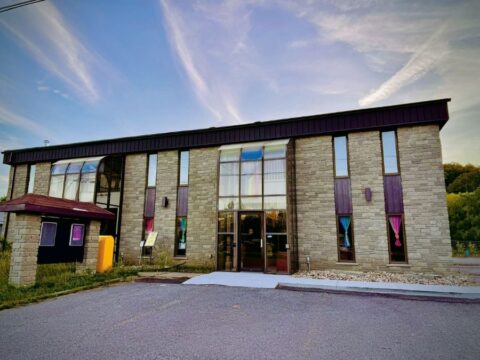For Canadians, crossing the border into the United States brings with it an immediate reminder of the prominent role that conservative evangelical Christianity plays in American life. Billboards with evangelistic or pro-life messages line major highways, a sight rarely seen roadside in secular Canada. Even outside the so-called Bible Belt, the United States is full of churches, Christian radio stations and celebrity preachers. From presidential speeches to game-day prayers to “In God We Trust” printed on the dollar bill, Christianity plays a massive role in American public life.
The news that Donald Trump has formed the Task Force to Eradicate Anti-Christian Bias in government thus seems incongruous, especially when it is framed as a response to an administration run by the devoutly Catholic Joe Biden. It leads to a natural question: whose Christianity does he want to protect? Surely it is not the Christianity of Rt. Rev. Mariann Budde, the Episcopal bishop whose sermon calling for mercy for immigrants and for gay, lesbian and transgender Americans was criticized by the president as “inappropriate” just a few weeks ago. It’s not Biden’s Catholicism or Hillary Clinton’s Methodism or the late Jimmy Carter’s generous evangelicalism. Nor is there any indication in the White House’s executive order of Christianity as historically and globally expressed in creeds and canons, the diverse array of doctrines, rituals and spiritual practices that shape Christian communities around the world.
You may unsubscribe from any of our newsletters at any time.
Instead, a much narrower definition of Christianity is in play here, one that defines Christian faith strictly by what it is supposedly against: abortion and transgender people. The language of the “anti-Christian bias” task force expresses outrage over the arrest of anti-abortion activists, both evangelical and Catholic, who were illegally blocking women from access to abortion clinics. It also takes aim at the very existence of transgender people, suggesting that by recognizing the rights of trans individuals, Christians are being forced to adopt “radical transgender ideology” and thus deny their faith.
This is, among other things, a reductive definition of Christianity. It is centred on exerting control over the bodies of women and trans people, rather than on Jesus’ teachings or the traditions of the church. Most alarmingly, however, the story being told perpetuates a conspiracy theory that can easily devolve into violence against marginalized bodies: that America is threatened from within, and those who are “other” are to be treated with suspicion.
Such anti-abortion and anti-LGBTQ+ sentiments are not long-standing tenets of the Christian faith, but rather ideas with a much more recent point of origin. As Kristin Kobes Du Mez points out in her book Jesus and John Wayne, in the first half of the 20th century, Christian attitudes toward reproductive justice were mixed. It was primarily the ascendance of Rev. Jerry Falwell and the religious right in the 1970s and ’80s, rallying southern evangelicals around the carefully selected issue of abortion, that cemented the idea that Christianity, pro-life advocacy and Republicanism were synonymous. Falwell also promoted the idea that homosexuality, along with feminism and communism, was a cause of national moral decay. The family was under threat, and the nation along with it.
More on Broadview:
- Gutting USAID will cost lives
- Should Canada’s religious charities lose tax status? Readers weigh in
- 5 ways people of faith can respond to Trump
This movement to codify into law conservative values about strengthening the nation by preserving the traditional family lies behind the increasing prominence in the Trump years of a new Christian nationalism in America. Christian nationalists, such as Speaker of the House Mike Johnson, openly question the value of the separation of church and state, which has long been a defining feature of American democracy. Instead, for such believers America has been and will always be a Christian nation — regardless of what that means for those of other faiths, minority groups whose bodies pose a threat to the status quo, or even those who don’t fit into a particular mould of what “Christian” means.
Discrimination and violence against religious groups, like violence against other minority communities, is real and dangerous. The rise of anti-Islamic and anti-Semitic violence and vandalism in North America is a major cause for concern in both the United States and Canada. Similar violence and acts of vandalism against Christian communities are equally reprehensible. However, especially from our vantage point across the border, the idea that there is a widespread conspiracy of “anti-Christian bias” in the United States seems absurd.
Whose Christianity? The Christianity that Donald Trump seeks to defend has little in common with the ideas of a certain first-century teacher whose stories encourage his followers to welcome those who are different, love their neighbours and stand up for the marginalized.
***
Brett Potter is an assistant professor of theology and religion at Huron University in London, Ont.















The religious right believes in a God described by Jesus according to the anonymous author of the Gospel of Matthew, at Matthew 25:14-30. These verses have Jesus comparing God to a cruel and greedy slave owner.
The religious left focuses on the Jesus of peace and kindness. This is possible due to the ambiguity in the Bible. As the Deist Thomas Paine pointed out in The Age of Reason, The Complete Edition, “…the Bible decides nothing, because it decides any way, and every way, one chooses to make it.”
Trump’s background as a nominal member of NYC’s Marble Collegiate Church in the days when Norman Vincent Peale was their minister may provide an indication of Trump’s religious views. Peale taught an ethically undemanding “positive thinking” style of faith, in which Christian (and preferably overtly Protestant) faith was aligned with social conservatism. It was essentially a religion for businessmen.
North American Christians today, regardless of political affiliation, struggle with the nature of Christianity. The truth of this statement is revealed in the number of denominations among our members of society. What is acceptable to one member of society as Christian, may not be acceptable for another Christian in the same society. It doesn’t mean that only one version of Christianity is acceptable. Members of society who have a strict view of Christianity must accept that other, more open views of Christianity are also acceptable. No one version can represent the totality of this religion. As a more open minded Christian person, I am insulted at the suggestion that I am not Christian at all.
I fail to see anything Christian about President Trump. Indeed, to me, he is the antithesis of what it means to be Christian. He is simply an opportunist that is co-opting people claiming to be Christian for his own benefit. To say that I am disgusted with him and those that claim to be Christian and adhering to him is an understatement. He and they are deplorable!
Like the United Church of Canada, the United States of America’s definition of “Christian” really isn’t Christian at all. Neither live up to their moniker.